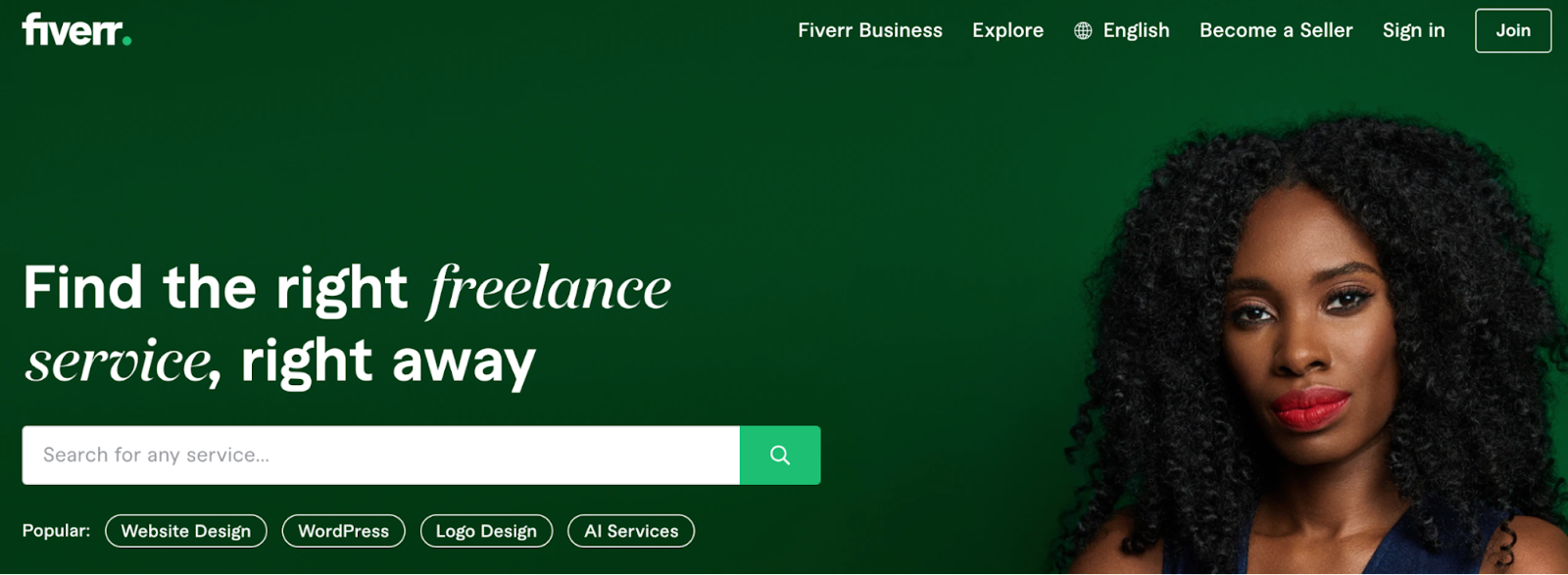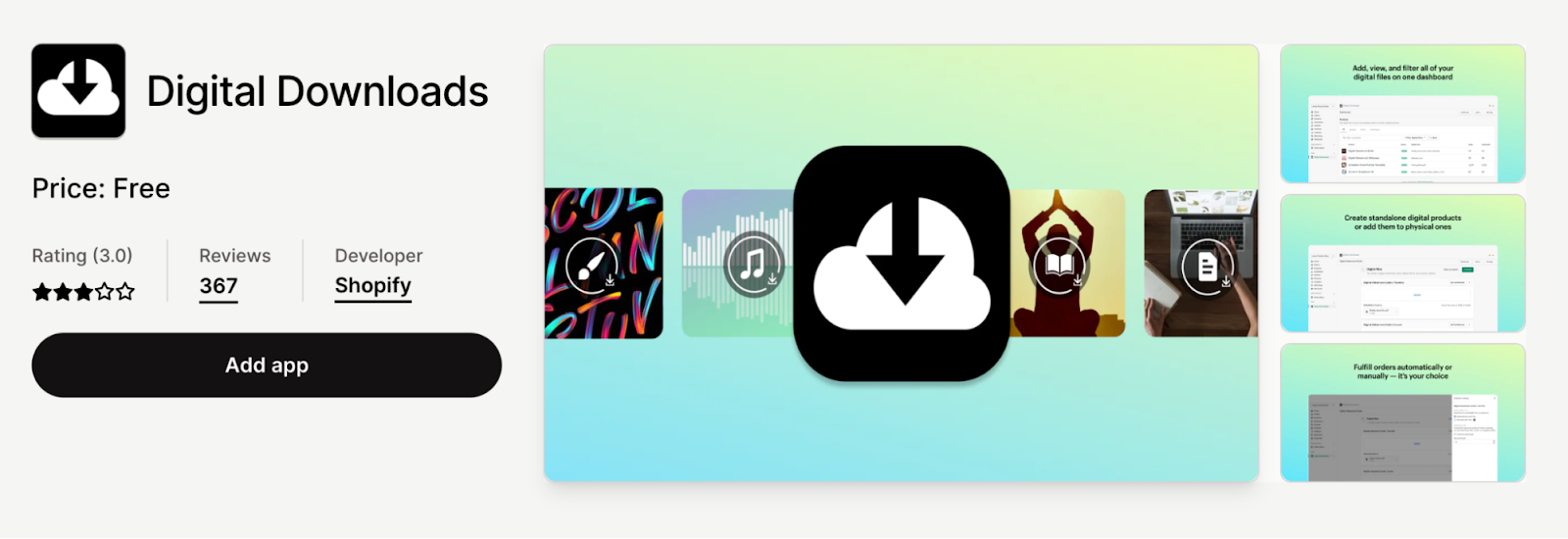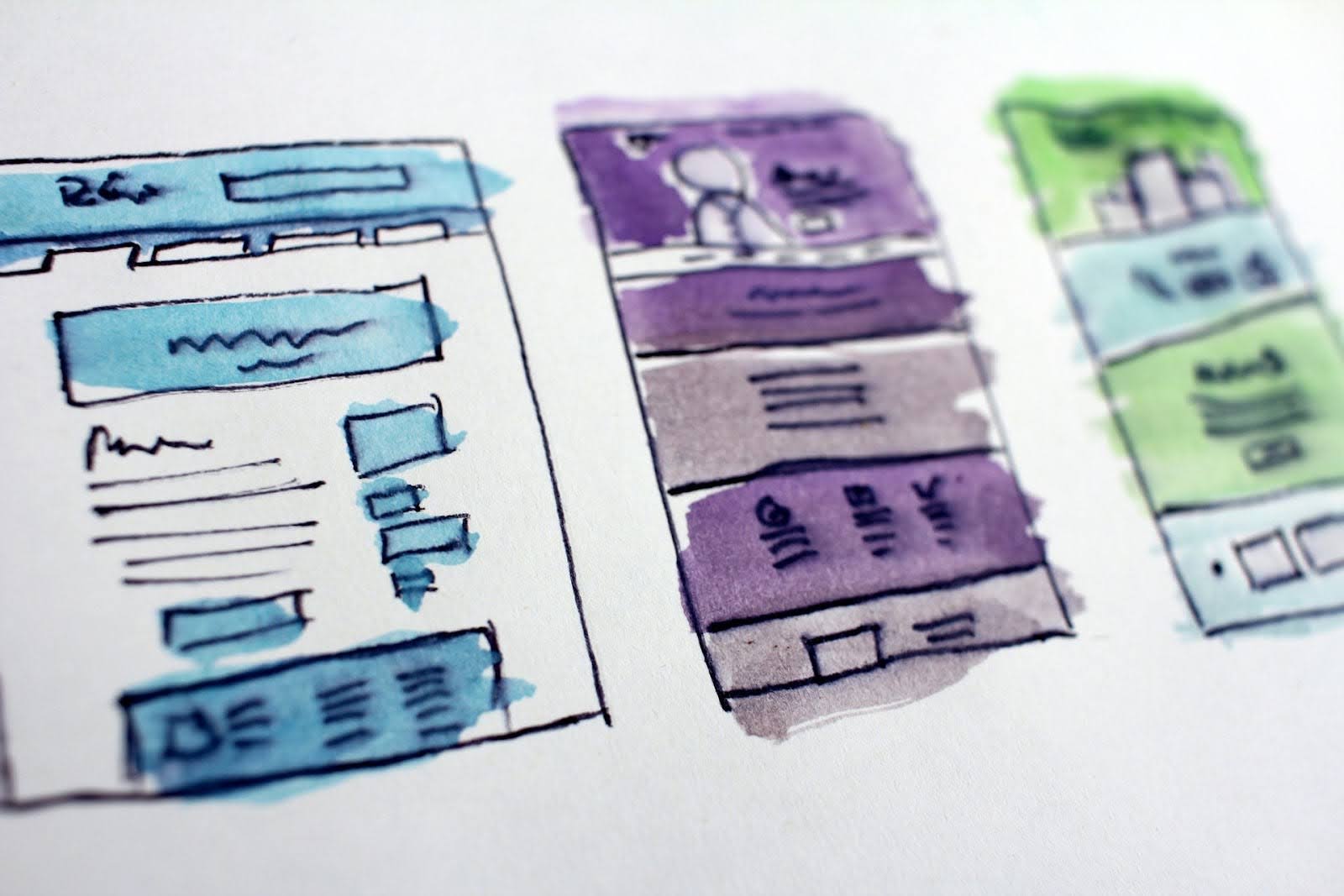Running a small business can be the perfect job for someone with an entrepreneurial spirit, but every business venture comes with its own set of challenges. The truth is, starting a business of any kind is hard work, and the first thing you need is an idea.
To begin, you’ll need to think of a strong business idea—one that has a natural customer base and the potential to scale up over time. For many, an online business is a good place to start, given the simplicity of ecommerce compared to starting a brick-and-mortar business.
Starting an online business isn’t about one simple life-changing trick. Like all forms of entrepreneurship, it requires dedication and sweat equity. In this guide, we’ll give you online business ideas for beginners and experienced entrepreneurs alike, as well as tips on how to start a business without quitting your day job.
Best online business ideas for 2024
- Start your own clothing line
- Launch a dropshipping business
- Sell your art online
- Become a freelance writer, designer, or developer
- Teach an online course
- Flip your thrift store finds
- Publish your own book
- Start a blog or a newsletter
- Become a virtual assistant
- Become an influencer
- Build apps and websites
- Launch a podcast
- Become an affiliate marketer
- Curate subscription boxes
- Develop a niche product
- Create handmade goods
- Become a social media manager
- Sell merchandise on marketplaces
- Become a translator
- Start an accounting or bookkeeping firm
- Become an online fitness trainer
- Sell music
- Start an online coaching business
- Do voiceover work
- Become an ad consultant
1. Start your own clothing line
If you have a passion for fashion and a willingness to navigate supply chains, you can start a clothing company.
The Shopify App Store is stocked with numerous product sourcing apps, including Printify and Printful. These apps connect you to apparel printers and clothing manufacturers—perfect for clothing entrepreneurs who want to oversee design but not manufacturing.
These services also handle every step of the retail fulfillment process for you, giving you the freedom to design and ship a wide range of pieces right out of the gate.
Why start a clothing line?
- As a clothing designer, you create products people use every day.
- As soon as you build your Shopify store, you can start selling instantly. Thanks to print-on-demand apps, the process of designing and delivering your own custom-made clothing is streamlined and simple.
- You’ll love the feeling of seeing your designs come to life by transforming your creativity into something real and profitable.
These handy resources can help grow your apparel business at every stage, from crafting your brand’s story to promoting your products with influencer marketing:
- Shirt Mockups in Seconds: Free T-Shirt & PSD Templates
- How to Start an Online T-Shirt Business
- How To Make and Sell Merch Your Fans Will Love
2. Launch a dropshipping business
Think you need a warehouse full of inventory to run your own business? Think again! Dropshipping is a great way to start a business on a budget. You can hit the ground running by sourcing a pre-existing product from a supplier and having them take care of things like packaging and fulfillment.
💡 TIP: With Shopify, it’s easy to start a dropshipping business and begin selling without the hassle of managing inventory, packaging, or shipping. Orders are sent directly from your wholesaler to your customers, so you can focus on what matters.
Why choose dropshipping?
- You don’t need to stock products in a physical location, meaning your cash flow won’t get tied up in inventory. There’s less of an upfront cash risk.
- Whenever a purchase is made, you place an order with a third party that handles the rest of the process for you. Since you don’t have to deal with things like tracking inventory or mailing packages, dropshipping eliminates a lot of headaches for budding entrepreneurs.
- No warehouse means you can run your business from anywhere. Whether it’s your living room or the café down the street, you decide where you want to work from.
If you don’t have any online store ideas, here are some resources for narrowing down the perfect product:
- Find products to sell on DSers.
- Read our guide on how to find a product to sell.
- Check out these 16 places ecommerce entrepreneurs go to find profitable products.
- Find out how one entrepreneur went from watching dropshipping YouTube videos to posting $3 million in revenue.
3. Sell your art online
Whether you’re a painter, photographer, or musician, there are plenty of online business ideas and ways to turn your latest masterpiece into a source of revenue with a beautifully designed ecommerce website.
If painting or photography is your forte, you can sell your art as prints, canvases, and framed posters using Printify or Printful. This is a fantastic way to turn your art into something tangible that people can take home and integrate into their space. You can also sell your work as digital downloads.
Why sell your art?
- You’ll be part of people’s lives by getting your work into customers’ homes.
- You’ll create a platform for showcasing your work by setting up shop online.
- As an artist, creating art isn’t just a hobby—it’s a way of life. This is your chance to turn your passion into an income stream and potentially do what you love for a living.
Looking for inspiration? Learn how artist Sarah Andersen went from viral comics to a creative franchise.
4. Become a freelance writer, designer, or developer
Writers, graphic designers, and developers can start low-cost businesses based on their talents. As a freelancer, you’ll get to hop between different companies, taking on different projects at different scales. Some writing or design gigs might require only an afternoon’s work. Other projects can last for months. Freelancers can create their own schedules and accept only the projects they want, at a pace that fits their schedule.
To find people that need your skills, try freelancing marketplaces like Upwork and Fiverr.

It’s worth noting that Fiverr is a little different from a traditional job board. As the name suggests, a lot of the posted jobs pay $5. The key to making big money on Fiverr is carefully setting up your offers so you can easily upsell the client.
For instance, you could offer to write a 150-word introduction for a blog post as your initial $5 service. As an upsell, you could charge another $10 for every additional 150 words. You can tweak your services until you’ve found a combo that makes it worth your while.
If you want to run your own freelance operation you can set up your own website and use apps like BTA: Appointment Booking App and Events Calendar to help your customers schedule appointments.
Why freelance?
- When you freelance, you choose which projects you want to work on and set your own schedule and workplace.
- Getting paid to do something you’re good at is a rewarding feeling, whether you’re looking to strike out on your own or just want to make some extra cash on the weekend.
- If you’re new to writing, designing, or developing, freelancing is an excellent way to build your portfolio and get some real experience in a wide range of industries. You might discover that you have a knack or passion for something you never expected.
If freelancing sounds like it might be a good online business idea for your lifestyle, we’ve put together some great articles that can help you make the most of your time:
- 21 Ways to Work from Home (+ 9 Productivity Tips)
- What Is a Lifestyle Business and How to Start One
- The 24 Best Productivity Apps
5. Teach an online course
Teaching an online course is a low-investment online business idea for generating passive income. Your online course can be as simple as a video walkthrough that you host on your own personal website. From there, you can go much deeper, creating multi-level courses with a combination of pre-recorded video and live class interactions.
Although it requires effort upfront, a popular, high-value video tutorial series can generate passive income as people continue to enroll in your course.
To start creating your first online course, brainstorm a topic you know well enough to teach someone how to do from scratch. This can be anything—music production, social media marketing, web development, you name it.
Next, you’ll want to grab a screencasting app, such as ScreenFlow, to record your screen and voice while you walk your students through your tutorial. ScreenFlow also comes with a built-in video editing suite, so you can shoot and cut your videos all on the same platform.
Why teach an online course?
- Your initial efforts will go a long way. Once you’ve created your online course, you can monetize it for years, drawing in new students and passive income.
- You already have the knowledge, you just need to share it. Focus on teaching something you’re already an expert at and the rest will come naturally, whether it’s building iOS apps, creating monthly budgets, or running Facebook ad campaigns.
- Teaching someone a new skill is its own reward. While there’s definitely money to be made teaching online courses, helping other people is always a satisfying experience in itself.
6. Flip your thrift store finds
If you love hitting up thrift stores and hunting down great deals, then one great online business idea is selling your second-hand treasures online.
Your potential customers want to buy cool stuff, but they don’t want to dig through old soccer jerseys and braided belts to get their hands on that one amazing find. Take advantage of this by positioning yourself as a trustworthy curator who can go out and uncover those great vintage pieces for others. You can sell these items on popular marketplaces like Etsy and Ebay, or you can build your own online store and sell them directly, with no third party taking a cut of sales.
Why sell your thrift store finds?
- If you’re combing through thrift store racks anyway, you might as well make some money while you do it.
- The margins are huge. That $2 ball cap you found? You can turn it into a $40 vintage hat.
- You’re selling something unique. Your exact catalog of vintage treasures won’t be duplicated by any other seller.
Make sure your offerings appear as alluring as possible. Take a look at these guides to making your products look great in photos:
- Perfect Product Photography: Craft a Perfect Setup
- Clothing Photography: Take Beautiful Apparel Photos
7. Publish your own book
If you’ve thought about publishing your own book someday, you’re hardly alone. Thanks to the advent of online publishers, it’s not that far out of reach.
It doesn’t matter if it’s a science-fiction novel, a marketing guide, or a children’s picture book, there are now plenty of options for successfully self-publishing your work. These include releasing your writing as an ebook with the Digital Downloads app or using on-demand printing services like Blurb.

To sell ebooks through your online store, install the Digital Downloads app and you’ll instantly be able to stock digital files as products. Once purchased, your ebooks will be sent to your customers via email or as a direct download link.
If you choose to sell physical copies of your book, you’ll just need to place an order whenever your work is purchased. They’ll custom print your book and handle the storage and fulfillment process.
Why publish a book?
- Self-publishing is the quickest way to get your book into the hands of potential readers. You won’t have to navigate the slow process of selling your manuscript to a publishing house.
- Printing, storage, and delivery are taken care of thanks to services like Blurb.
- You can list your book on a marketplace like Amazon and take advantage of a built-in customer base of eager readers.
Ready to live out your dreams of being a published author? This resource will help you on your way to the top:
8. Start a blog or a newsletter
Blogging has come a long way since its inception. What was once a virtual journal has now turned into a marketing and monetization tool. Writers can now host a blog on their personal website, or they can create email newsletters via platforms like Substack.
Whether you make money from subscriptions, sponsored posts, hosting third-party ads, or selling your products, a blog is an online business idea you can operate from home.
The key to starting a successful blog is to focus on building an engaged, loyal audience. When you start with an audience-centric approach, you’ll cultivate a community that trusts you. And when you can earn trust, you can start to drive revenue.
That’s how Mr. Money Mustache started his popular personal finance blog. What began as a movement turned into a successful business that’s earned national media coverage.

Why start a blog?
- Blogs have immense growth potential. You can expand into affiliate marketing, ecommerce, courses, and essentially any other online business venture. You can send email newsletters on a paid subscription model to drive revenue.
- A blog is a long-term play. While you’re unlikely to see overnight results, you may be able to cultivate a loyal readership base.
- It lets you practice your writing—an essential skill to have in business and communication. Use tools like Grammarly or Hemingway to improve your writing.
For more information on getting started, check out these articles:
- 15 Blog Examples to Inspire Your Own Content
- 4 Ecommerce Blog Post Templates to Build Traffic for Your Store
- How a Blog Became a Physical Store in Two Years
9. Become a virtual assistant
Are you super organized and love working behind the scenes? If so, you might be the perfect candidate to start a virtual assistant (VA) business.
A VA works remotely, using the phone and internet to help entrepreneurs, businesses, and executives organize their personal and professional lives. Virtual assistants tackle a broad spectrum of duties, from appointment scheduling to basic marketing management and everything in between. And while traditional assistants come into an office, a VA works remotely, often from the comfort of their own home.
Why become a VA?
- Work with your ideal client. Even if you don’t know at the start, over time you’ll find out who you love working with and what tasks you love doing for them. You can evolve your business to cater to those preferences.
- Interact with people from all over the world. All you need is an internet connection to do your work and you can have the chance to work with international clients and professionals.
- Grow your business into a network of VAs. If you become too busy or have growth goals, you can hire and train VAs to work under you and increase profits.
10. Become an influencer
Influencer marketing is a $21 billion industry according to Statista, with plenty of business opportunities to be had.
You may associate influencing with celebrities, but there’s a robust market for micro-influencers—those with smaller but nonetheless engaged followings. This means you don’t need millions of followers to earn money on Instagram.
Why be an influencer?
- It’s an opportunity to get an introduction to marketing—particularly valuable if you’re interested in pursuing it as a career or additional business venture.
- You’ll learn about new and interesting brands. You might discover products and companies you love that you never would have found had they not solicited your services. In many cases, you’ll receive products that you can keep for free after profiling them.
- You can grow your own brand as an influencer. Perhaps you weren’t particularly famous before you debuted as a micro-influencer. If you’re a natural on camera and actively engage with your audience, you may find fame for profiling products online.
Here are our inspiring tips and stories to get you started as an influencer:
- How to Make Money as a Full-Time YouTuber
- How to Make Money on YouTube: 7 Simple Strategies (+ Video)
11. Build apps and websites
If you’re tech-savvy, acquire some coding skills and start building. Whether it’s mobile apps, Shopify apps, or websites, you can create digital products for purchase or as a service provider.
For example, you can create a custom Shopify theme template and sell it to merchants looking for an affordable DIY approach to designing their website. You can also work with clients directly to build websites and apps tailored to their specific needs.
Why build apps and websites?
- As more people embrace ecommerce and online entertainment, there will be expanding demand for the technical skills necessary to build apps and websites.
- Site building and coding can be quite lucrative. A skilled freelance web designer can work for an hourly rate ranging from about $50 to $100. Depending on the scope of the project, you can expect to earn a few thousand dollars for a completed website.
12. Launch a podcast
Every day, millions of listeners tune into podcasts using platforms like Spotify, Apple, Pocket Casts, and Stitcher. Many of these podcasts contain paid advertising, which helps pay the people who write, record, and produce the episodes. Podcasts are a great home business idea with multiple monetization options, similar to starting a blog.
Here’s what you need to start your podcast:
- A high-quality microphone
- Audio recording software
- Call recording software
To promote your podcast, consider collaborating with prominent figures as guests on your show. Encourage listeners to leave reviews and share your podcast with their friends and family.
Why start a podcast?
- Podcasts continue to grow in popularity. According to Statista, 79% of Americans have heard of podcasts and 38% have listened to one in the past three months.
- A successful podcast can lead to endless possibilities: Turn your episodes into a blog, gain sponsors and advertisers, and immerse yourself in a community you feel passionate about.
- Many podcasters simulcast on YouTube. You can film yourself taping episodes and post the content on YouTube. This opens up another revenue stream and a broader audience for your work.
Get some inspiration for your own podcast with these best business podcasts for entrepreneurs.
13. Become an affiliate marketer
Affiliate marketing is when you recommend a product or service by sharing it on your blog, social media, email list, website, or other channel. You earn a commission each time someone converts through your unique referral link or code.
Find an affiliate program that suits your interests, personal brand, and target audience. Affiliate Future, ShareASale, and FlexOffers are a few examples. Amazon has its own affiliate program, and you can also check out the Shopify Affiliate Program.
Once you’ve signed up, start sharing. Create social media posts, blog articles, emails, and other content about how great the product or service you’re promoting is. Don’t oversaturate your audience with ads, otherwise you risk coming across as spammy or inauthentic.
Why do affiliate marketing?
- You’re tapping into a natural instinct to help people. You probably already tell your friends about products and services you use. Now you can get paid for it!
- Affiliate marketing is a great source of passive income. You continue to make money when your affiliate links lead to sales, even if it’s long after you posted those links. Take note that Shopify has its own affiliate program that rewards Shopify users who recruit new merchants to the platform.
14. Curate subscription boxes
Subscription boxes are themed packages of various products. There are subscription boxes in pretty much every industry, from meal-prep kits and craft snacks to fitness products and makeup. You can curate subscription boxes around virtually any theme of your choice.
Bokksu, for example, curates Japanese snacks and sends them to customers each month.

When you curate subscription boxes, you work with brands and artisans to purchase and resell their products in a bundled offering. Typically, consumers expect to be surprised by what’s in the box, though there are some (like meal prep kits) where the customer chooses what they receive.
Why curate subscription boxes?
- It’s a viable seasonal business. Subscription boxes are often purchased as gifts. So if you’re only interested in running your online business for part of the year, this could be a model worth checking out.
- It’s a growing industry. Subscription ecommerce sales totalled over $38 billion in the US in 2023.
- You don’t need to create your own products. Instead, you can use proven, successful products and simply put them together in a nice package.
15. Develop a niche product
If you recognize an opportunity in a certain niche, you can create a bespoke product to fill a market need. Niche products cater to a unique audience—one that may not be served by mass-market offerings.
A product niche could be based on industry, demographic, price point, geography, values, product attributes, and more. For example:
- Conscious consumers: There’s a market of consumers who want vegan, sustainable, and eco-friendly products.
- Pet owners: Pet owners represent a broad niche. You can tap into a smaller niche by targeting the owners of uncommon pets, like chinchillas or bearded dragons.
- Blind or deaf customers: Mass manufacturers often overlook those with compromised vision or hearing. You can cater to the needs of these communities with products and gain significant market share in the process.
Why develop a niche product?
- Niche products are unique and potentially buzzworthy. Early success can be all you need to drive press coverage with zero budget.
- Choosing a specific target customer makes it easier to create marketing and messaging that resonates. Rather than trying to speak to a broad, diverse group, you’re talking to a group of individuals with lots of shared characteristics.
16. Create handmade goods
If you’re particularly crafty, selling handmade products might be a great online business idea. Whether you make jewelry, picture frames, or furniture, you can monetize your craft skills by selling these products online. Selling handmade goods can even be an achievable business idea for kids.
While you can use platforms like Craigslist or Etsy to sell your wares, operating your own online store will give you more control and make it easier to track and fulfill orders.
Why sell handmade goods?
- Devote as much or as little time as you want. It’s your choice how big you want to grow.
- Create on your schedule. Make your handmade goods when you have spare time or even on your lunch break from your primary job.
- Turn your passion into income. You may already be making handmade goods in your spare time. Turning your hobby into an entrepreneurial endeavor can yield a combination of pleasure and profit.
Ready to find new homes for your handcrafts? Get started here:
- Moving From Etsy to Shopify: An Ecommerce Migration Story
- The Business of DIY: 24 Things to Make and Sell Online
17. Become a social media manager
Effectively managing and growing social media accounts is a skill. If you have the chops, consider becoming a social media manager or a consultant for brands.
You’ll be responsible for maintaining a company’s social presence online, developing its social marketing strategy, managing campaigns, and related tasks like sending emails. It’s a solid online business idea with plenty of demand, with jobs in social media expected to grow by 6% through 2031, and it doesn’t take that much startup capital to begin.
Start your process by building up followers on your own social media channels. This functions as social proof that will help you win clients. Next, you’ll want to set up a business website and a payment processing system. As you gain more experience, you can start catering to a wider array of social media needs, like profile growth, outreach, or brand sponsorship management.
Why start a social media management business?
- The service-based business has few barriers to entry, and it’s relatively easy to get started.
- You can be your own boss and decide your earning potential. The more experience and results you can show, the higher your service fees can be.
- If you’re a regular social media user, you can turn something you’re already doing into a money-making activity.
Ready to start your own social media management business? Brush up on social media know-how with the following resources:
18. Sell merchandise on marketplaces
Selling merchandise on marketplaces can be a sustainable online business model. Seller platforms like eBay, Bonanza, Etsy, OfferUp, or Facebook Marketplace make the process of listing products, capturing contact information, and receiving payments easy.
The best part? These massive seller platforms already come with built-in traffic. As the seller, it’s your job to get strategic with your listing and keep track of what sells and how well so you can optimize your efforts. You can do all of this from the comfort of your home, too.
To turn a profit under this business model, you’ll want to sell merchandise at a higher price than what you paid for it. This may mean buying items in bulk and reselling them at a higher per-unit cost.
It could also mean combing through garage sales and secondhand stores to find items with notable resale value. You can also use these marketplaces to offload unused items you have around your home. You won’t turn a profit unless you sell your old items for more than you paid for them. Still, you can make some extra cash while clearing space in your home.
Why sell on marketplaces?
- It’s affordable to start, without a hefty upfront investment.
- You get access to a pool of traffic you might not be able to tap into on other platforms.
- The online selling skills you acquire can translate into adjacent businesses down the road.
19. Become a translator
Knowing more than one language can make you money. Combine your multilingual abilities with an internet connection and you can be well on your way to starting an online translation business. The translation industry is booming—it doubled in size in the past decade. You can market your services on a translation platform like Gengo, on an all-purpose gig marketplace like UpWork, or on your own website.
As a translator, you can apply your skills to translating content, meetings, résumés, books, or even online conferences. As you refine your skills, you can charge by the hour or by the project. No matter which pricing model you use, a translation business can be both flexible and lucrative once you get started with your first few clients.
Why start a translation business?
- Translation can be a low-cost business that doesn’t require ad management or dealing with inventory.
- If you speak a less common language, you can carve out a niche that makes you a go-to translator for a specific set of clients.
- You can use your translation gigs to create a portfolio for higher status projects, like translating entire books.
20. Start an accounting or bookkeeping firm
If you have a background in finance, you can take advantage of the steady market demand for accounting and bookkeeping. Try going freelance, offering your services to clients looking to outsource this part of their business.
Your qualification for this work will depend on your training and experience. A bookkeeper, who routinely keeps track of a company’s business transactions, can be largely self-taught, using software like QuickBooks to keep an accurate ledger. An accountant prepares documents that may be presented to tax collectors and business investors. Most companies will insist on hiring a certified public accountant (CPA) for such work.
Assuming you have the requisite training, you can bootstrap an accounting or bookkeeping business with a combination of advertising, word of mouth, and tenacity. You can list your services on platforms like UpWork, run your own website, or do a combination of both. As you begin to gain clients and deliver great work, referral clients start coming your way.
Why start an accounting or bookkeeping business?
- Businesses have a consistent need for reliable, ethical bookkeepers and accountants to help them monitor finances, prepare tax forms, and attract investors.
- While tax prep is largely seasonal (most tax accountants are busiest from January through April), there is steady year-round work to be found in corporate bookkeeping and financial management.
- A service-based business like accounting and bookkeeping thrive on building relationships and returning customers, which may ease your reliance on digital marketing campaigns.
21. Become an online fitness trainer
Like many other service-based industries, fitness training has migrated online. Popular trainers like Kayla Itsines are making a killing online through memberships, fitness apps, and ebooks.
If you have fitness training experience, offering such services online might be a no-brainer.
Much of online fitness training involves video lessons—either live or pre-recorded. Other elements of a digital fitness business include workout guides, recipe books, and forums where class members can connect and share tips. All of these can live on your fitness training website.

As you get started, don’t forget to leverage social media—fitness is a visual industry. Being present on platforms like Instagram and TikTok can be a great way to build an audience and win clients.
Why start an online fitness trainer business?
- There is steady demand for fitness training. Americans spent more than $30 billion at gyms and health clubs in 2022.
- The public is open to online training. Video workouts have been around for decades, as fans of Richard Simmons and Sally Struthers know. The internet allows for a more interactive form of video training, and many customers are happy to embrace that model.
- You can create evergreen content like courses, cookbooks, or fitness plans that can continue to bring in passive income long after you’ve finished making them.
22. Sell music
If you’re able to write and produce music at home, you can sell it via licensing websites that connect composers to clients in search of musical cues.
Just take a look at The Drum Broker, the largest online drum sample business in the world. Its founder created a successful and sustainable small business model with the help of apps like FetchApp. Other online music marketplaces include PremiumBeat, Epidemic Sound, and CD Baby.
Why create and sell music?
- Commercial clients actively seek musical compositions to place in their ads.
- Unlike other sectors of the music industry, you don’t need personal connections to break into selling music online.
- Selling tracks online can bolster your résumé and make you a stronger candidate for more lucrative work, like scoring an entire movie.
23. Start an online coaching business
Life coaches help steer their clients through important events involving work, relationships, and lifecycle milestones. It has some overlap with therapy, but coaches don’t need a license or a master’s degree to practice their craft. To succeed as an online coach, it helps to carve out a niche. Clearly communicate what specialties you offer and what results clients can expect from your coaching sessions.
One way to break into coaching is to market yourself on social media. Online coaches like Simone Seol use Instagram to reach potential clients. As you build up your client base, you can get more work from word-of-mouth referrals—both from patients and fellow coaches.
Why start an online coaching business?
- Online coaching has high income potential if you have solid interpersonal skills and can help clients achieve their goals.
- You don’t need a license or a degree to work as a coach. You can start coaching in any subject you’re knowledgeable enough in to charge for.
- Happy clients can stay loyal to you and give you valuable word-of-mouth referrals.
24. Do voiceover work
Many voiceover artists make professional recordings from the comfort of their own home. You can join their ranks by learning the basics of recording software and investing in equipment like a condenser microphone, a digital audio interface, a computer, and the software itself.
You’ll also need a soundproof space in your home—closets do an excellent job of absorbing outside noise, and you can invest in soundproof panels to hang from walls.
Voiceover artists record audiobooks, commercials, webinars, course guides, and acting roles, among other work. To start booking voiceover work, consider recording a demo reel, setting up a website, and social media presence that will attract customers to you. You can also keep track of voiceover audition calls in trade forums like Backstage.
Why start a voiceover business?
- Starting a voiceover business can turn your voice into a revenue generator.
- While you’ll need to invest in both software and hardware to record yourself at home, you can create a full voiceover setup for less than $1,000.
- Voiceover work can present many fun job opportunities, from narrating books to acting.
25. Become an ad consultant
Ads are everywhere, and behind many of them are consultants who help businesses optimize their outreach. Much of this work can now be done online, as successful ad consultants like Monica Louie can attest.
To get started, pick the types of ads you want to specialize in—whether that’s PPC ads on Google, Instagram ads, Facebook ads, TikTok ads, or even display ads—and then start marketing your services with a professional website. You can also advertise your services on professional networking sites like LinkedIn.
To succeed in ad consulting, it helps to have a background in the field with test cases you can present to interested clients. If you’re brand new to ad strategy, it can be helpful to work under a seasoned ad consultant until you gain expertise. Later, you can hang a shingle for an ad consulting business of your own.
Why start an ad consulting business?
- Ad consultants will have work as long as there is advertising—which is to say, forever.
- It’s a great online business idea if you’re savvy with people and understand the basics of advertising strategy.
- You can work with multiple clients simultaneously, building out your network as you do.
How to start an online business in 6 steps
- Validate your idea with research
- Develop your product or service
- Set up your business finances
- Find vendors and suppliers
- Build your business website
- Market your new small business
Once you’ve decided on an online business idea, you’ll want to do your due diligence and, eventually, give it life. Here’s how to start a business online, step by step:
1. Validate your idea with research
It might sound harsh, but it’s true: Just because you think you have a great idea doesn’t mean there’s a market for it.

Before investing your time and energy into starting your business, research how feasible it is and whether there’s any potential buyer interest. You can hire an agency to conduct market research for you, but if you’re on a shoestring budget, you can also take the DIY approach. These resources will help get you started:
- What is Market Demand and How to Calculate It
- How to Use Niche Marketing to Build Your Business From the Ground Up
After conducting market research, write a business plan to clarify your ideas. Having a business plan will help you stay organized and focused as you go through the ups and downs of starting a new business.
2. Develop your product or service
You’ve validated your idea, now it’s time to turn it into a reality. Whether you’re selling a product or service, you need to create it. Find a manufacturer to bring your product to life, create packages of your service offerings, or write your book and identify a self-publishing option to bring it to fruition.
If you go the dropshipping route, the product has already been developed for you. It’s up to you to choose the products you’re passionate about or that you’ve identified a hot market for. To help you, we’ve put together a guide to finding the best products for dropshipping.
3. Set up your business finances
“How do I open a business bank account?” is a common question for many new entrepreneurs. After you’ve officially registered your business with your local government, you should have the tax identification numbers and other information required to open a business bank account.

As you grow, you might need funding for future endeavors, be it a new product launch or marketing and advertising spend. Having business bank accounts makes it easier for you to manage that capital, as well as track your revenue and expenses.
Having a bank account is also helpful when it comes to tax preparation, since your business-related transactions will be in a single place. As your business finances get more complicated, hiring a professional accountant or tax professional could be a viable option.
💡 TIP: Want to simplify your business finances? Shopify Balance is a free financial account that lets you manage your business’s money from your Shopify admin. Pay no monthly fees, get payouts up to four days earlier, and earn cashback on eligible purchases.
Further reading:
- Best Small Business Accounting Software Picks
- Small Business Accounting 101: How To Set Up and Manage Your Books
- How to Do Crowdfunding: With Expert Tips and Examples from Successful Campaigns
- The Entrepreneur’s Guide to Small Business Finance and Accounting
4. Find partners, vendors and suppliers
Product-based online businesses in particular may require lots of business relationships. For example: a manufacturer, a dropshipper, or a third-party logistics coordinator. When identifying which partnerships you want to move forward with, it’s best to shop around and compare your options to make sure you’re getting the best solution for your needs.

Other online business ideas may require different relationships or contractors. If you’re writing a book, for example, you may want to hire a professional editor and book designer.
5. Build your business website
If you want to start an online business, you need to have a website. And to make money online, you’ll need to incorporate payment processing functionality.

First, come up with a business name. You can use a business name generator to help you if you’re stuck. You’ll need one to start building your website.
Then choose a domain name and verify that it’s available. You can purchase a domain name for less than $20 a year in some cases. From there, you can build your own store on a platform like Shopify and start accepting payments from customers right away.
Here are a few other resources to help you get started with your ecommerce site:
- Shopify’s domain name generator
- Ecommerce Business Blueprint: How to Build, Launch, and Grow a Profitable Online Store
- Ecommerce Website Designs: Best Shops And Why They Work
6. Market your new small business
Getting your first paying customer is a huge milestone for a new small business owner. Now that you’ve got your store set up, you’ll want to start getting your business out there. But finding new customers and creating convincing promotions takes time and energy.
There are so many channels to choose from—email marketing, mobile marketing, etc.—it’s hard to know the best way to grow your online business. It’s easy to get caught up in the wrong tactics and invest your time and money in the wrong places.
Here are some resources to help you market your business:
- Social Media Marketing Guide for Small Business Owners
- What Are Marketing Channels? Types and Examples To Decide on Yours
- How To Market a Product: 10 Highly Effective Ways
Start your online business today
If you’ve been thinking about starting an online business, it’s time to get out there and embark on your new web startups ideas in your spare time. You don’t have to go all in. Start small with a part-time side hustle and scale from there. Or, keep things small. The beauty of learning how to start a business online is that you can take whatever path you choose.
Read more
- The Ultimate Guide To Dropshipping (2024)
- How to Start a Dropshipping Business- A Complete Playbook for 2024
- 130+ Dropshipping Products To Sell for Profit
- How To Source Products To Sell Online
- The 13 Best Dropshipping Suppliers in 2024
- AliExpress Dropshipping- How to Dropship From AliExpress
- The 9 Best Dropshipping Websites for Your Online Store
- Free Business Plan Template- A Practical Framework for Creating Your Business Plan
- Making Spirits Bright- Inside the Workshops of 7 Christmas Store Owners
- How to Make and Sell Stickers Online
Online business ideas FAQ
How do you brainstorm online business ideas?
- Create a brainstorming board and put all your ideas on it.
- Revisit with fresh ideas and refine your list.
- Get help from friends and family.
- Survey existing customers to find new online business ideas.
- Check search trends on Google Trends.
What is the best online business to start?
- Dropshipping
- A clothing line
- Selling art
- Curating subscription boxes
- Selling handmade goods
- Being an affiliate marketer
- A blog
- A consulting business
What is the best online business to start from home?
- An ecommerce store
- Buying products in bulk to sell online
- Teaching online courses
- A writing business
- Online services
- Selling homemade products
- Starting a YouTube channel
- Becoming a blogger
What are some online service business ideas?
- Graphic design
- Freelance writing
- WordPress development
- Shopify theme building
- App development
- Web design
- Copywriting
- Search engine optimization consulting
How do I start a small online business?
1. Find a gap in a niche market and fill it.
2. Learn how to write copy that sells.
3. Build and design your own website.
4. Get on social media sites like Instagram, Facebook, and LinkedIn.
5. Optimize your website for SEO.
6. Become an expert in your industry.
7. Provide excellent customer service.
8. Create multiple sources of income.
Do I need an LLC to sell online?
You don’t need an LLC to sell online, but it’s recommended that you file for one. As a business owner, this helps mitigate risk and protects your personal assets in case you end up in a lawsuit or need to file bankruptcy.





